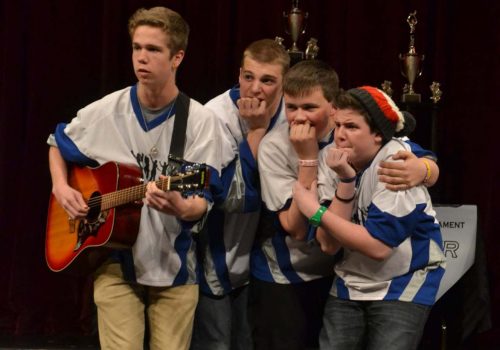Junior teams have been an important building block for the CIG for over twenty years.

Since 1997 the Canadian Improv Games has been running Junior Tournaments alongside their classic tournament open to all ages within high schools. The Junior Tournament in BC is one of the longest-running tournaments; it’s where the official Junior format was created. It has proven to give leadership responsibilities to younger students that focus on core improvisation skills so when they do join the senior team, they are prepared to grow even more as a player and explore higher challenges at the senior level. The Junior format is altered slightly, allowing Junior teams to focus on an open scene built around basic story structure. Practicing this format on a competitive level as Juniors means that, when they progress to senior play, these performers can relax their focus on basic story structure and layer on more difficult games, thereby excelling at their events.
Junior Tournaments are only for players in grades 7–10 and in most areas are not part of the competitive stream to Nationals. Even though this tournament is not on the National stream, it can be an excellent training ground for assistant coaches and up-and-coming players that did not make the senior team.
Teams in the Junior Tournament perform two events out of the following three: Story, Style and Character. Additionally, the Theme and Open events are mandatory. Junior teams do not play the Life event.
Don’t be a silly goose. Sign up and stay in the know!